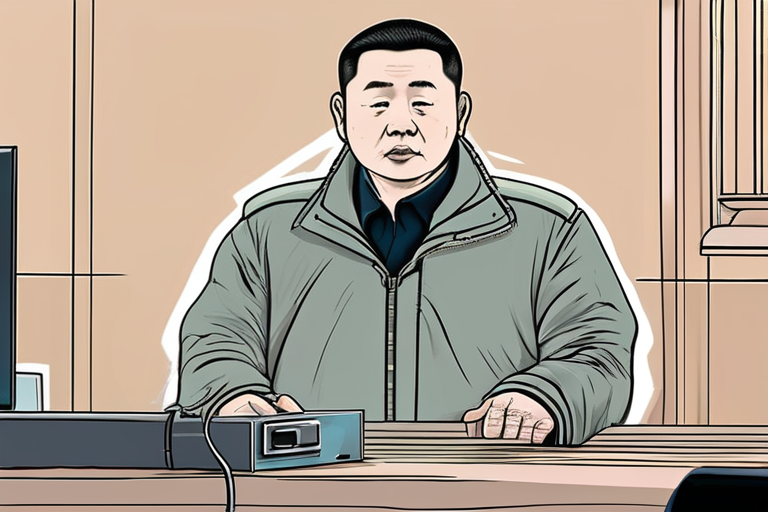As the sun rises over the tranquil waters of the South China Sea, a dramatic scene unfolds in the world of international finance. In a coordinated effort, prosecutors in Taiwan, Hong Kong, and Singapore have seized hundreds of millions of dollars in assets belonging to a Cambodian businessman accused of running a global cyber-scam network. The move marks a significant escalation in the global fight against online scammers, who have been wreaking havoc on unsuspecting victims worldwide.
At the center of the storm is Chen Zhi, the founder of Prince Holding Group, a Cambodian conglomerate with interests in real estate, finance, and technology. According to U.S. authorities, Chen is accused of masterminding a large-scale cyber-scam network that spanned countries including the U.S., the U.K., and Palau. The indictment, revealed on October 1, charged Chen with wire fraud conspiracy and money laundering conspiracy.
The scope of Chen's alleged scheme is staggering. Prosecutors claim that his network of scammers used sophisticated tactics to dupe victims out of millions of dollars. They would pose as representatives of legitimate companies, such as banks and tech firms, and convince victims to transfer large sums of money to their accounts. The scammers would then launder the money through a complex web of shell companies and offshore bank accounts.
The asset seizures, which took place in the past week, are a significant blow to Chen's empire. In Taiwan, authorities seized several luxury yachts, including a 100-foot superyacht valued at over $10 million. In Hong Kong, they confiscated a collection of high-end sports cars, including a Lamborghini and a Ferrari. In Singapore, prosecutors seized a portfolio of properties worth hundreds of millions of dollars.
The seizures are a testament to the growing cooperation between law enforcement agencies in the region. "This is a significant victory for international cooperation in the fight against cybercrime," said a spokesperson for the Ministry of Justice Investigation Bureau in Taiwan. "We will continue to work closely with our international partners to bring perpetrators to justice and protect victims from these types of scams."
The impact of Chen's alleged scheme is not limited to the financial losses suffered by his victims. It also highlights the growing threat of cybercrime in the region. Southeast Asia has become a hotbed of online scams, with scammers using social media platforms and messaging apps to target victims.
Experts say that the rise of cybercrime in the region is driven by a combination of factors, including the growth of e-commerce and the increasing use of digital payments. "Cybercrime is a growing concern in Southeast Asia, and it's not just limited to scams," said a cybersecurity expert based in Singapore. "We're seeing a rise in ransomware attacks, phishing scams, and other types of cyber threats. It's essential that governments and businesses work together to strengthen their defenses and protect their customers."
As the investigation into Chen's alleged scheme continues, authorities are warning victims to be vigilant and report any suspicious activity to the authorities. The asset seizures are a significant step forward in the fight against cybercrime, but experts say that more needs to be done to protect victims and prevent these types of scams from happening in the first place.
In the end, the story of Chen Zhi and his alleged cyber-scam network serves as a reminder of the importance of staying safe online. As we increasingly rely on digital platforms to conduct our daily lives, it's essential that we remain aware of the threats that lurk in the shadows. By working together, we can create a safer and more secure online environment for everyone.



























Share & Engage Share
Share this article